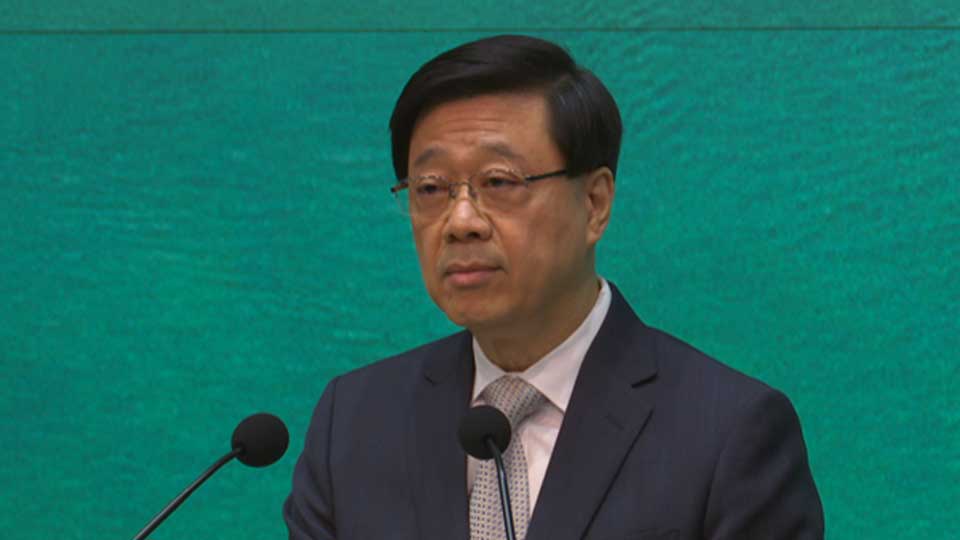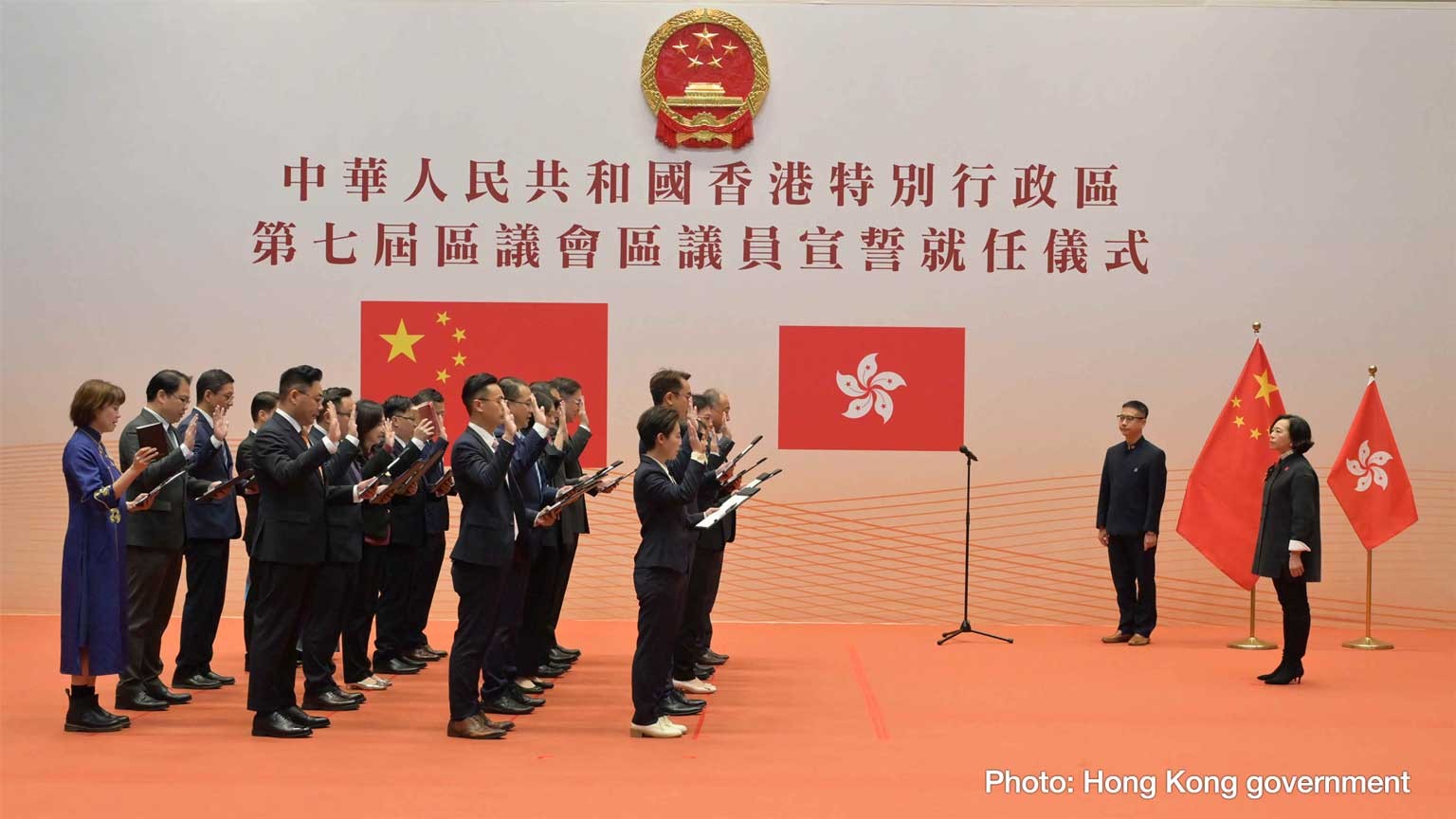Last month, Hong Kong held district council elections after a "patriots-only" overhaul. On the surface, the election campaign period was business as usual. Candidates used loudspeakers to state their case, the government put up election notices all over the city, and the vote was hailed as peaceful and successful.
But the turnout told a different story. Despite authorities extending the voting period from 14 hours to 15.5, only 27.5 percent of eligible voters cast a ballot. That's the lowest figure since the city's handover to China, and a marked contrast to the 71.2 percent that turned out in 2019 to hand the democratic camp a landslide victory.
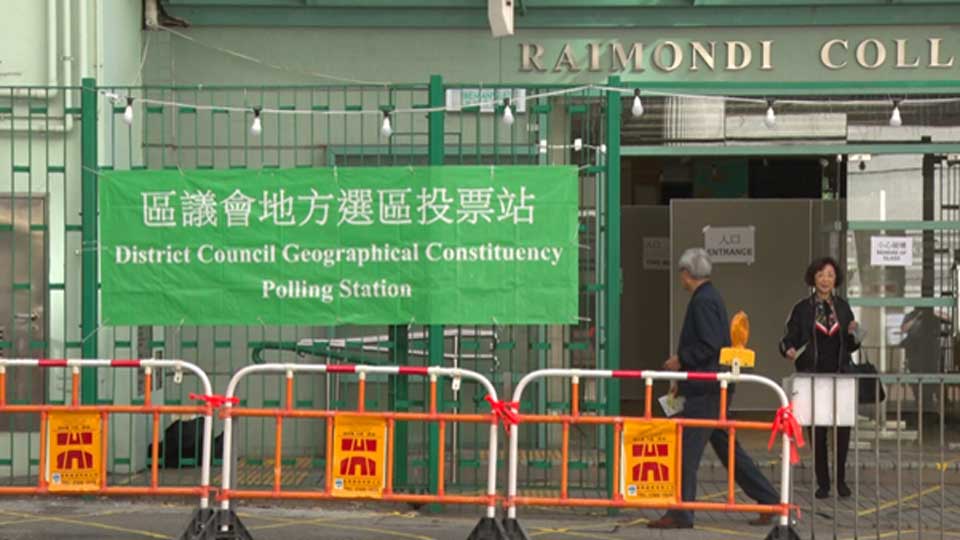
A sweeping national security law enacted in 2020 put many of the city's most prominent opposition figures behind bars, and ensured the rest were ineligible for the race. As a result, most of the newly elected councilors are from pro-Beijing parties.
Though the electorate showed an unprecedented lack of interest in voting, the Hong Kong government and Central government hailed the outcome.
"The turnout of 1.2 million voters has indicated that they supported the election, they supported the principles, and they supported the idea that the new District Councils will be producing good candidates, good District Council members for the overall good of each district," said Chief Executive John Lee Ka-chiu two days after the election.
But comments from several Hong Kong people who did not vote suggest otherwise. They told NHK they have grown apathetic about the city's politics.
"I see the banners everywhere, and I know something is happening recently, but I'm not sure what the purpose is," said a 28-year-old man who did not vote.
A 50-year-old lady said, "I am not too familiar with the candidates and not sure why we are voting this time."
Revamped election
In March 2021, 2,895 delegates from the National People's Congress (NPC), the top legislature in Beijing, approved a motion to overhaul Hong Kong's electoral system as part of their stride to ensure "patriots administering Hong Kong."
A new vetting system was introduced to screen candidates, making sure they are "bearing allegiance to the HKSAR of the People's Republic of China."
On the heels of Beijing's decision, Chief Executive John Lee announced amendments to the district councils' structure last May.
The number of democratically elected seats was slashed from 452 in the last elections to only 88. The remainder would be filled either by government appointments or candidates elected by government-appointed committees.
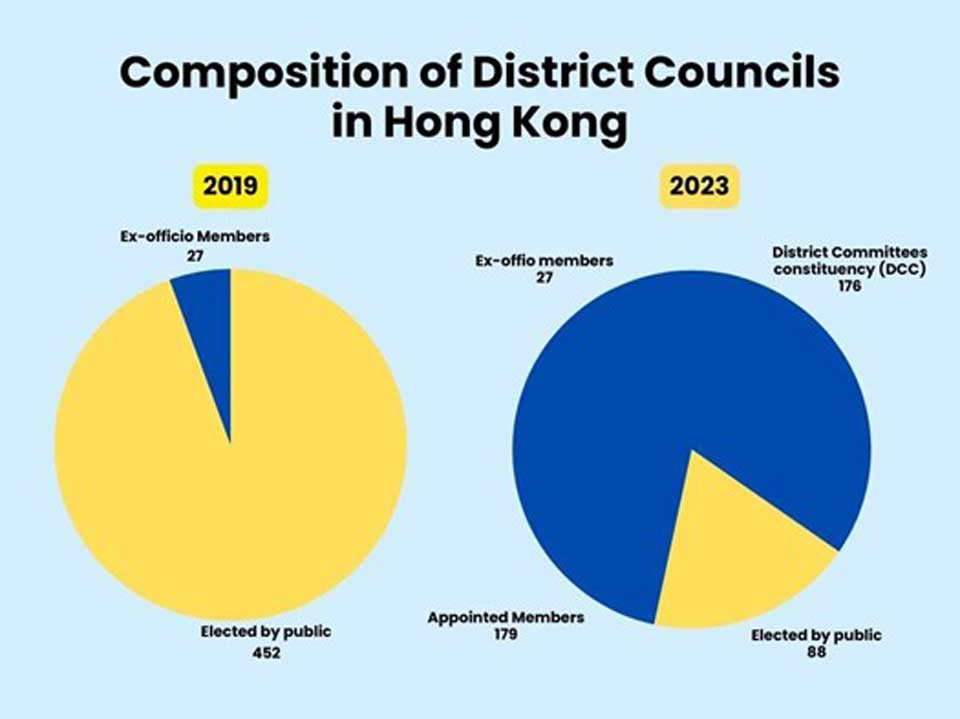
The city leader said the new system would protect Hong Kong from the "chaotic and harmful situation" of 2019, when voting was accompanied by anti-government protests.
He said it was essential to prevent "the attempt to make Hong Kong 'independent' and the attempt to cause disaster to Hong Kong society as a whole."
He also clarified that district councils are only consultative bodies without any political power.
To ensure that only "patriots" were allowed to run, the government added a new requirement for candidates: they now need at least three nominations from three government-appointed committees in order to qualify. Those committees are populated with pro-Beijing figures.
Uphill battle for democratic camp
Leo Chu Tsz-lok, former vice-chairman of the Yau Tsim Mong district council, was one of the few pro-democratic camp members still willing to try to overcome the hurdles.
"Under the electoral system change, there has been some divide among democratic camp supporters. Some think that we shouldn't participate under this system, but some think that we should fight for every inch," said the 32-year-old councilor.
He was one of six candidates representing the Democratic Party, the largest in the pro-democracy camp in Hong Kong.
Without connections to the three government-appointed committees, Chu and his team worked hard to win the backing of committee members that he said "wanted to avoid me even if we knew each other."
Chu mailed letters to several hundred committee members introducing himself, his past work, and his plans for the community if he were elected.
But Chu failed to qualify, as did all other democratic candidates. He said it was an outcome he expected.
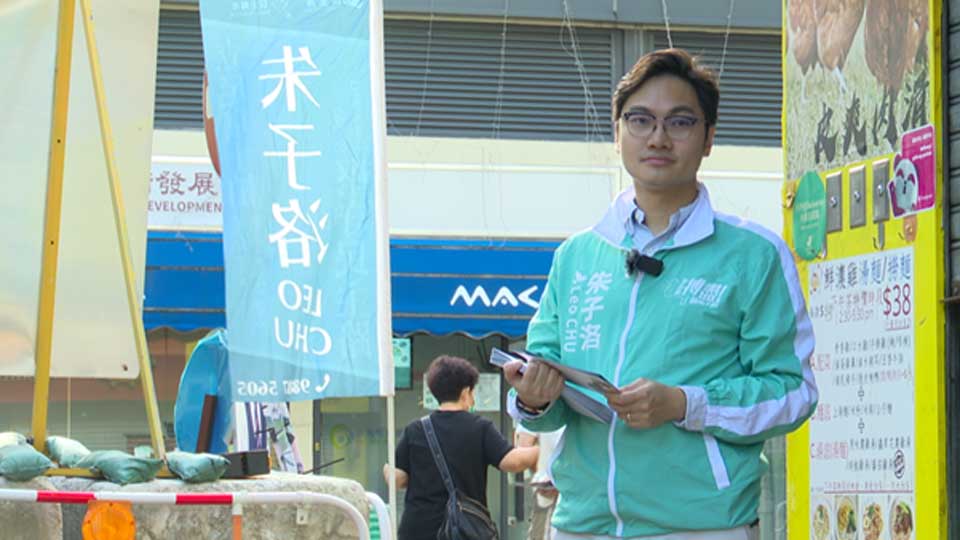
Democratic candidates dominated the 2019 elections, taking control of 17 of the 18 district councils. Last month's election was the first without any candidates from the democratic camp.
Chu says he feels helpless and frustrated watching their efforts of the last few years be in vain. But he remains determined to serve his community: "With or without a seat, we see that a lot of Hong Kong people cannot freely express themselves as before, so we hope to use our limited power to continue speaking up for them."
No more dissent
On voting day, John Lee cast his ballot early in the morning, smiling and waving to cameras at the polling station. There was a heavy police presence to guard against disturbances. Some democratic protestors were arrested before they could even attempt to express their discontent in front of the city leader.
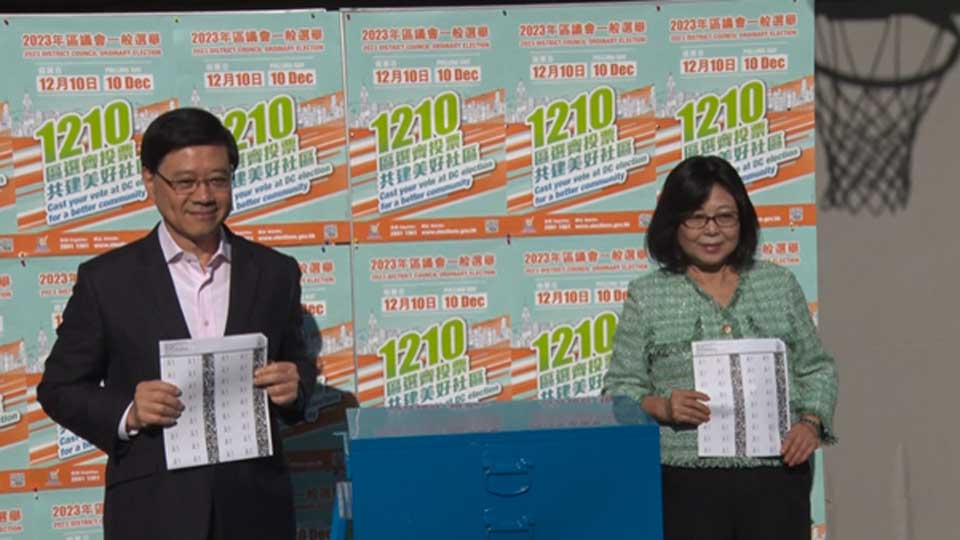
Several people were charged with using social media to "incite people not to vote" in the election.
At the end of the day, the election results of the new district council offered few surprises, and the councilors were praised by John Lee as "all patriots, instead of foreign agents, (who) will not betray the interest of the country, of Hong Kong, nor of the community."
'Last piece of the puzzle'
On Lee's visit to Beijing in December, Chinese President Xi Jinping praised him for steering the district council system back onto the "right track" while safeguarding national security.
"The vitality of one country, two systems will continue to show its superiority. We are confident in the bright future of Hong Kong," said Xi in the closed-door meeting.
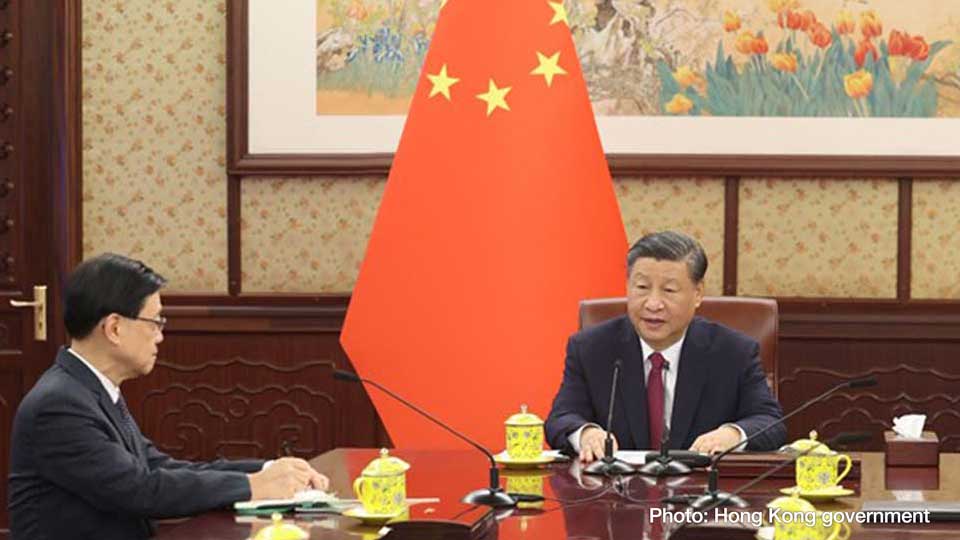
The recent election has been described as the last piece of the puzzle in creating a system of "patriots administering Hong Kong." But Lee and his government have a new goal in mind.
Lee has vowed to take a further step in safeguarding the city's national security by legislating Article 23 in the Basic Law, a mini-constitution in Hong Kong. On top of the national security law enacted in 2020, Article 23 allows the city to make its own law banning acts, including treason, theft of state secrets and having any political ties with foreign organizations.
The legislation has been proposed by previous chief executives. In 2003, some 500,000 people took to the streets to protest against it, resulting in the chief executive being forced to step down.
But Lee is determined to get it done and now has the Beijing loyalists-filled Legislative Council to see it through. "The government will complete the legislation of Article 23 in the Basic Law within [2024]," he said after his visit to Beijing. "Together with the national security law, it will form an effective legal system to safeguard national security."
